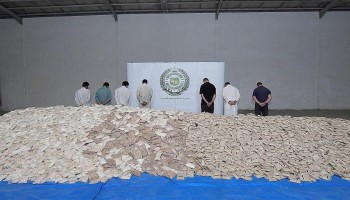Opium poppy cultivation in Afghanistan fell 20% in 2025 compared to the previous year, according to a new report by the United Nations Office on Drugs and Crime (UNODC), marking a continued decline since the Taliban’s 2022 nationwide ban on poppy farming.
The UNODC estimated that 10,200 hectares were under cultivation this year, down from 12,800 in 2024 and far below the 232,000 hectares recorded before the ban. Opium production dropped by 32% to 296 tons, while farmers’ income from sales plunged nearly 50% to $134 million.
Many farmers have switched to growing cereals and other crops, but drought and poor rainfall have left more than 40% of farmland barren. The recent return of about 4 million Afghans from neighboring countries has also increased pressure on limited jobs and resources, raising concerns that some may turn back to poppy cultivation.
Meanwhile, the UNODC warned that synthetic drug production—especially methamphetamine—has surged, with seizures in and around Afghanistan up 50% by the end of 2024.
“Afghanistan’s path to overcoming illicit crop cultivation requires coordinated, long-term investments,” said Oliver Stolpe, UNODC’s regional representative. “Empowering Afghan farmers through alternative livelihoods and addressing both supply and demand are key.”
UN officials said that as traditional opium production falls, synthetic drugs have become the new focus for organized crime groups, prompting calls for counter-narcotics strategies to expand beyond opiates.






